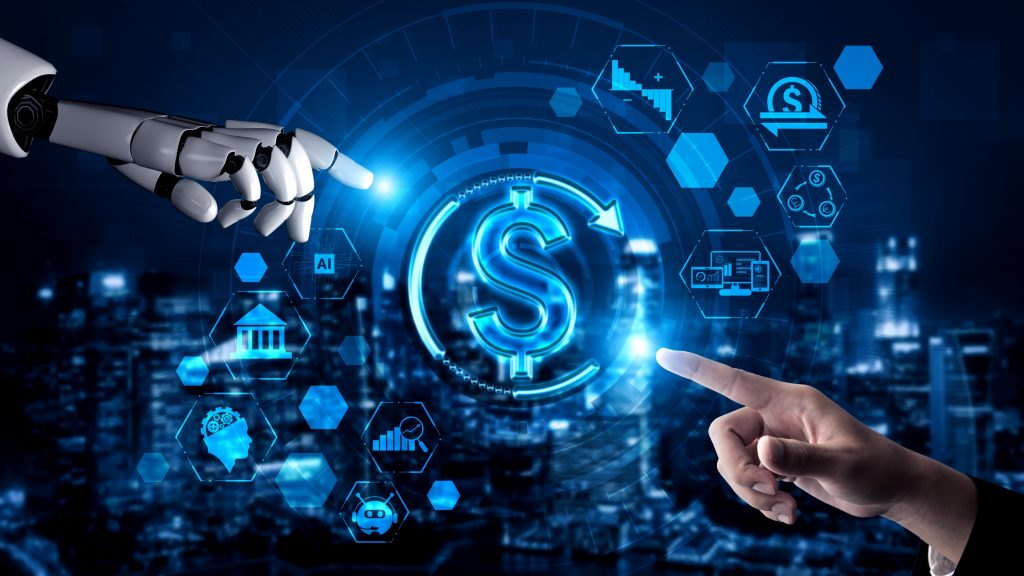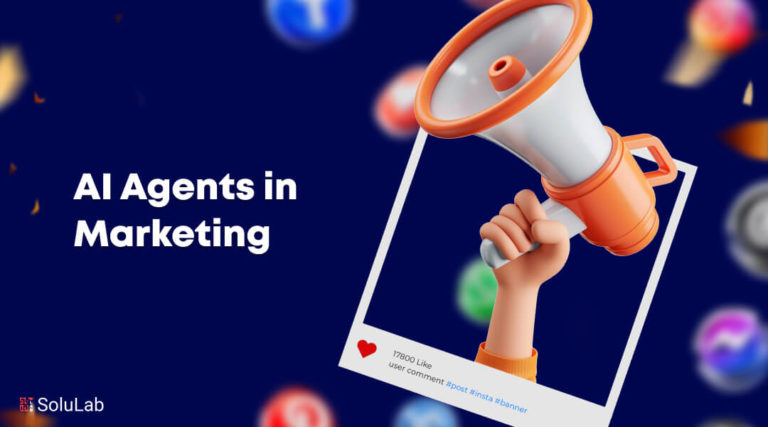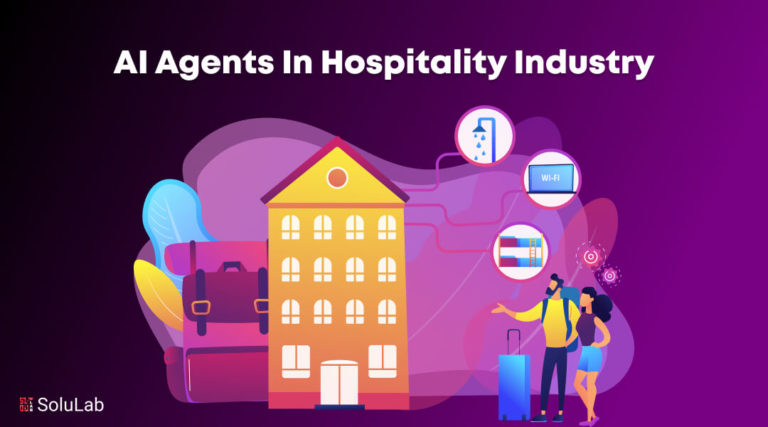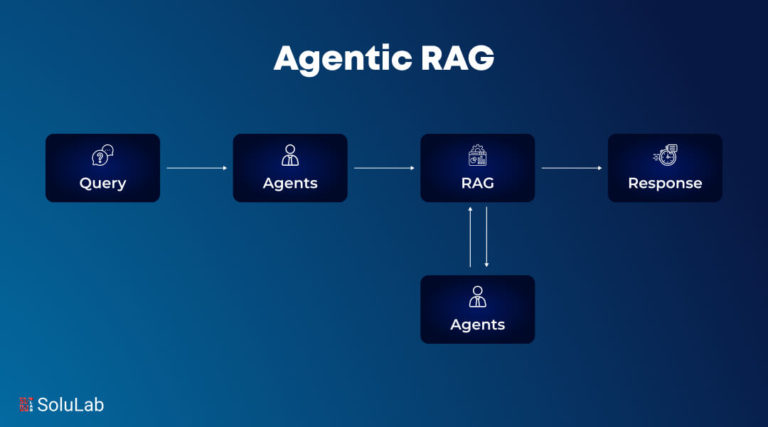Table of Contents

There has been a number of changes in the IT world recently. One of the most talked-about collaborations that can possibly change the entire landscape of the online world is the usage of AI technology in blockchain technology.
Additionally, Big Data can contribute to this change quite significantly. The future of AI technology is yet to be discovered, but the possible use of Big Data and AI technology in Blockchain can open new horizons that nobody ever thought of.
Before we dive into the possibilities that the usage of these three technologies can offer, let us explain what these three technologies are:
What is Big Data?
Big data may be a term used for very large data sets that are to be analyzed computationally to reveal patterns, associations, and trends, especially just in case of human behavior and interactions. The data is so vast that it's not possible to be stored in one database, but it is saved across hundreds or even thousands of databases. Due to the varied aspects of the data, and also the speed and kind of it, it's usually difficult to process using generic, traditional database and software techniques. To satisfy the challenge, new varieties of processing are taking drugs more and more, to use the riches of bringing huge datasets together and drawing insights from them.
Big data is completely a sign of the changing times, where data is generated faster and more frequently every day:
- Most of the data that is collected is unstructured and requires different sorts of storage and processing than what is found in traditional relational databases.
- The already available computational power is escalating quickly, which implies that there are lots more opportunities to process big data.
- The Internet now has standardized data, whilst steadily increasing the knowledge available along with producing more amounts of data.
An example of 'big data' would be medical data. Imagine for a flash the hordes of data one hospital department could hold on its patients and staff members. Once you begin to look beyond that single department, to the full hospital, or the entire trust, maybe even the full NHS — you can begin to figure out both the challenges and opportunities available. Big data and it's processing and analysis are some things that you'll hear more and more of. As a world that's increasingly flooded with information, creating new ways to process, analyze and measure it'll be inevitable.
How is Big Data beneficial for businesses?
Big data projects are typically surpassed large corporations that have huge volumes of transactions and commercial traffic, the likes of FANG (Facebook, Apple, Netflix, Google), for example. But the benefits of consolidating and analyzing huge sets of data don't seem to be just for the corporate elites.
Any business which will have the good thing about mass trends on data, rather like the simplest times to advertise to certain demographics on social media (for example), can get pleasure from buying big data analysis externally. The reality is that the larger the dataset is, the accurate trends and predictions one can model.
What is Artificial Intelligence?
Artificial Intelligence (AI) has a varied range of complex technologies like machine learning, deep learning, predictive analytics, etc. under it. At its most straightforward, AI is that the power for a machine or bug to think and learn, supported the concept of building machines capable of thinking, acting, and learning like humans. AI can speed up analytical tasks, problem-solving, and pattern recognition, so its use in business is growing per annum. To some, the utilization of AI is crucial to its functioning.
How is AI beneficial for businesses?
Adopting AI programs could appear reserved only for the massive tech giants, but the truth is many smaller businesses have begun to integrate AI, becoming more data-driven within the method. Here are a variety of the ways you will be able to do it:
-
Intelligent CRMs -
Nowadays, small businesses can take pride in AI functionality embedded into popular CRM platforms like SalesForce. Taking data on consumers from various sources, AI technology can help small businesses in analyzing consumer feelings in recorded phone conversations, social media posts, emails, and customer reviews. It can effortlessly evaluate the customer feedback, and adjust marketing and lead generation activities per the requirements of the consumers.
-
Intelligent customer service solutions -
Customer service is essential for customer satisfaction and retention, but a few support agent tasks are menial and repetitive. AI software can easily help with such tasks, by suggesting and efficiently automating answers and routing support issues as quickly as possible to the right team. Through freeing up agents' time, AI can altogether reduce the handling time likewise as automate repetitive tasks to enhance both customer and employee satisfaction.
-
AI for marketing -
The analyses of customer engagement with respect to marketing campaigns is getting easier due to AI. Through various channels like websites, Facebook, and Google, specific AI programs can easily analyze advertising performance and make informed suggestions about targeting audience, copy, and budgeting. What usually would have taken expert teams can now easily be done through one program that aggregates and analyze data from various sources.
-
AI for competitor analysis -
AI-powered competitor analysis tools are out, which is able to track your competitors across different channels like social media, mobile apps, and websites. In pair with tongue processing and metric analysis, the tools can identify price changes and subtle modifications in messaging and PR to convey a more robust idea of your competitors' business strategy. By having a clearer idea of their direction, AI tools make it quick and simple for you to identify competitors' strengths, weaknesses, and product gaps - helping inform your own business strategy.
What is Blockchain?
Blockchain, a technology that continues to be quite new, has recently gained popularity. In simple terms, a blockchain is also a database that stores and records digital transactions between different parties. What sets it apart from a regular database is that it's decentralized, so records aren't stored in an exceedingly very single place. Instead, records are shared with every party therein Blockchain (or database). This {can be} often} important because digital assets and transactions can be manipulated and/or duplicated. Blockchain technology very easily solves this problem without employing a 3rd party.
Without the intermediaries, parties have a neater, more transparent relationship with one another. Every transaction that is done using blockchain technology is recorded on the Blockchain and available for everyone to see, hence everything is completely transparent. And since the data is secured through tamper-proof cryptography, not a single party can potentially tamper with the records.
Blockchains are often public or private. A public blockchain like Bitcoin is joined by anyone - anyone can participate within the network. The disadvantage of a public blockchain is that a substantial amount of computational power is required to require care of a distributed ledger at an oversized scale. More specifically, to appreciate consensus, each node during a network must solve a complicated, resource-intensive cryptographic problem called an indication of labor to verify all are in sync.
Businesses who founded a non-public blockchain will generally establish a permissioned network. This places restrictions on who is allowed to participate within the network, and only in certain transactions. Only the entities participating in a very particular transaction will have knowledge and access to it — other entities will haven't got any access thereto.
How Blockchain could benefit the business?
In case you have multiple parties involved in your market, beyond just buyers and sellers, you'll like Blockchain to induce duplication & errors from everyone using different databases.
If there's mistrust or fraud in your market, you'll also take pride in Blockchain to feature more transparency and trust between parties. as an example, with pricing agreements or holding up service levels.
Now that we've got that out the way let me tell you the way Big Data and AI, along with Blockchain, can help change the landscape of technology together. Initially, glance, Blockchain, and AI seem distinctive, and it is! But thanks to recent advancements in Big data, it's created a dynamic environment for the amalgamation of those technologies.
The Conjunction of Blockchain and AI
The most compelling motivation for combining Blockchain and AI originates from the requirement to reinforce big data analytics. The analytics involves thoroughly examining superfluous amounts of information, which is often about customers, to unravel correlations between distinct data points that may provide the required insight. Looking back, big data analytics has often been employed by enterprises to spice up customer acquisition and retention, introduce targeted advertising and even improve risk management. In simple terms, enterprises are looking to enhance their profits by better understanding their customer base.
This corporate agenda would be impossible today without the increase of social media platforms and also the internet. On top of getting access to the social media activity of users, companies often have access to shopping behavior, geographical information and even political preference of a minimum of 2 billion people. But this data is usually chaotic, vast and random.
This is where AI kicks in, artificially intelligent algorithms are often taught to draw meaningful insights from the hoard of knowledge available. Where does Blockchain fit into all this?
How Blockchain is helpful for AI?
Artificial intelligence needs vast amounts of knowledge to find out and make insightful decisions; Blockchain becomes a completely unique way of storing data securely.
As mentioned earlier, Blockchain often boils right down to being a distributed ledger technology, which suggests it creates a large database of each transaction on the network. But unlike traditional data storage solutions, which are usually centralized, blockchain networks are extremely decentralized. This implies blockchain stores data on an unlimited network of computers, which constantly verify the data with one another, making the info stored on the network immutable. Just in case a hacker gets into one computer and manipulates the information, the abnormality is usually picked up by the opposite computers on the network and also the data manipulation made invalid.
On top of this, the information stored on Blockchain is cryptographically secured, meaning modifying the information is incredibly difficult. Blockchain users may also check if the information stored on the network has been tampered with, by simultaneously cross-checking the cryptographic signature of the info across all nodes (computers) on the network.
This makes Blockchain a perfect solution to store sensitive data. The identical can't be said for our current networks and systems, which are often the victims of cyber hacks. For instance, In November last year, the Marriott hotel group revealed the non-public data of the maximum amount as 500 million of its guests were stolen by hackers.
Thus, from this, we will conclude that Blockchain may be a critical element within the advancement of AI systems and massive data analytics. But can AI be useful for Blockchain?
How AI is helpful for Blockchain?
AI systems could completely change the way we glance at blockchain networks and make them far more effective. For instance, while transferring Bitcoin to a different peer on the identical network, it often takes days to verify the transaction. Ironically, this is often unwittingly caused by blockchains decentralized nature, as transactions encouraged on Bitcoin's network are established by Bitcoin miners, who group these transactions into blocks.
Therefore, an unparalleled increase in Bitcoin transactions could possibly delay the configuration time even further as 'block' sizes are limited, which suggests the transactions which exceed the capacity of a particular block, will get queued for confirmation by bitcoin miners.
AI technology systems could help bring down this burdensome process by reducing the computing power which is required to substantiate the desired transactions. Because the Hashing algorithms accustomed to confirm transactions on a blockchain network often uses a 'brute force' approach. An AI system could possibly be trained to boost these algorithms by providing it with the proper data.
Quick Read: Artificial Intelligence And Its Contributions To Cyber Security.




